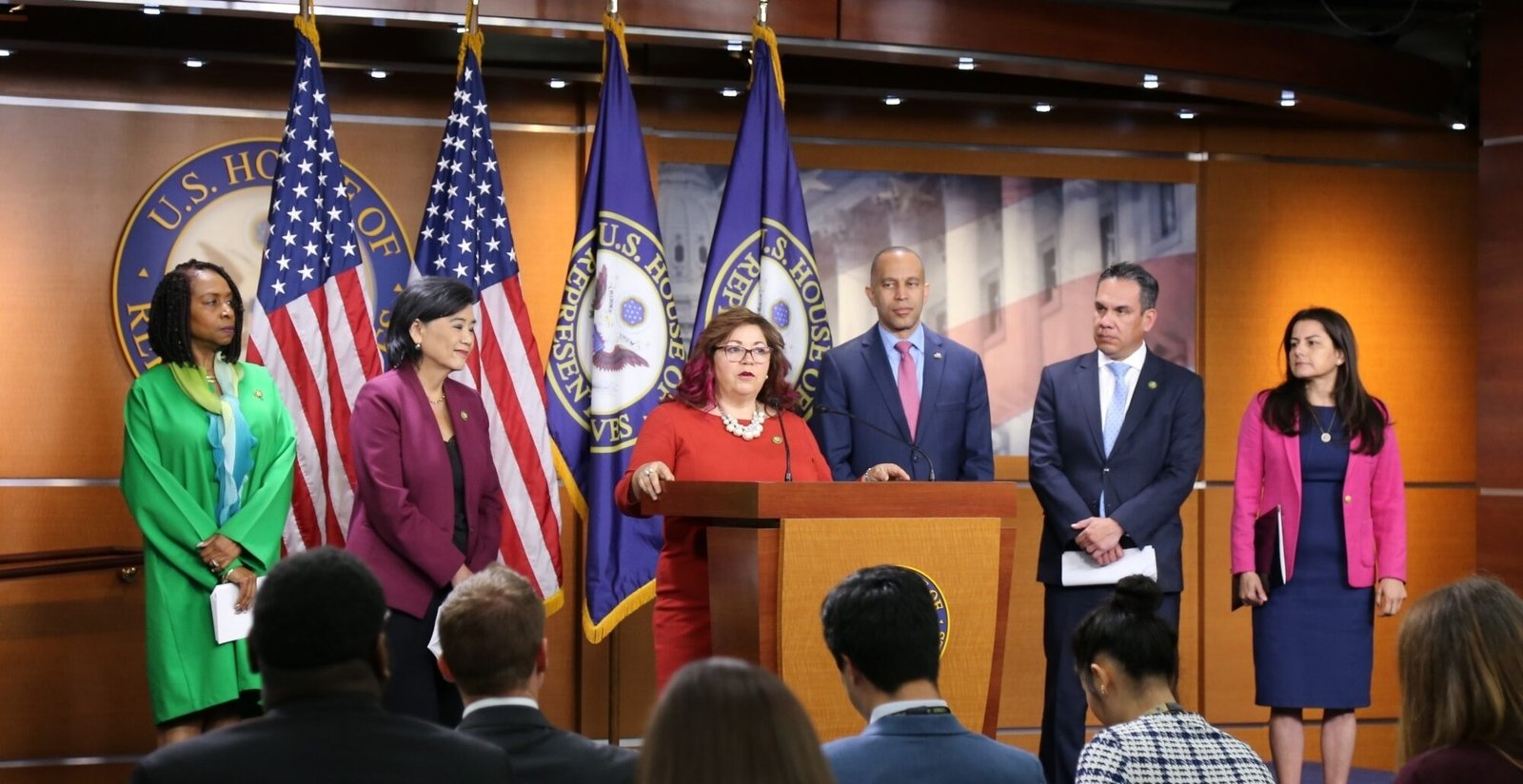New York, May 11 – In a bid to fix the US immigration system, Congresswoman Linda Sanchez and other Democrats introduced a Citizenship Act to deliver a pathway to citizenship for millions of undocumented immigrants living and working in the country.
The US Citizenship Act 2023 will make way for Dreamers, recipients of Temporary Protected Status (TPS), agricultural workers, including their spouses and children, immediately eligible for green cards.
“As the daughter of immigrant parents from Mexico, I am honored to introduce the US Citizenship Act today… a bold, transformative framework that will finally fix our broken immigration system,” Sanchez said in a statement.
“The US Citizenship Act will help us grow our economy, make our borders safer and more secure, and deliver a pathway to citizenship for millions of immigrants already living and working here,” she added.
Nearly 4 million people in the US with approved family-sponsored petitions are waiting for an immigrant visa to become available, and an estimated 4.4 million American citizen children have at least one parent who is undocumented.
Approximately 1.6 million undocumented noncitizens in the country are married to US citizens and roughly 675,000 are married to lawful permanent residents.
The bill protects children from aging out of visa eligibility due to processing delays, and ensures that beneficiaries of family-based petitions retain their earliest priority date even if they later become eligible for a visa under a different category.
It also seeks to reform the family-based immigration system by clearing the immigrant visa backlogs.
It bill recaptures unused family-sponsored visas since FY 1992 and exempts from the numerical limitations — spouses, permanent partners, and children under the age of 21 of lawful permanent residents; derivative spouses and children of principal applicants; and individuals who have been waiting to be reunited with their families for more than 10 years.
The bill also alleviates lengthy wait times for individuals from higher-admission states by raising the per-country limits from 7 per cent to 20 per cent.
To retain talent and strengthen the economy, the bill also exempts individuals with a doctoral degree in a field involving science, technology, engineering, or mathematics from an accredited US institution of higher education from the numerical caps on visas.
Foreign-born workers make up 17 per cent of the workforce and undocumented workers comprise approximately 4.4 per cent.
An estimated five million undocumented workers are serving in essential roles as front-line workers.
Eliminating discrimination against LGBTQ+ families, the bill permits citizens and permanent residents in binational same-sex relationships to sponsor their permanent partners for immigration to the US.
The bill expands current protections to ensure that the death of a sponsor does not prevent the immigrant from establishing eligibility for the relevant benefit and prevents the children of fiances of US citizens from aging out of the visa application and green card processes.











